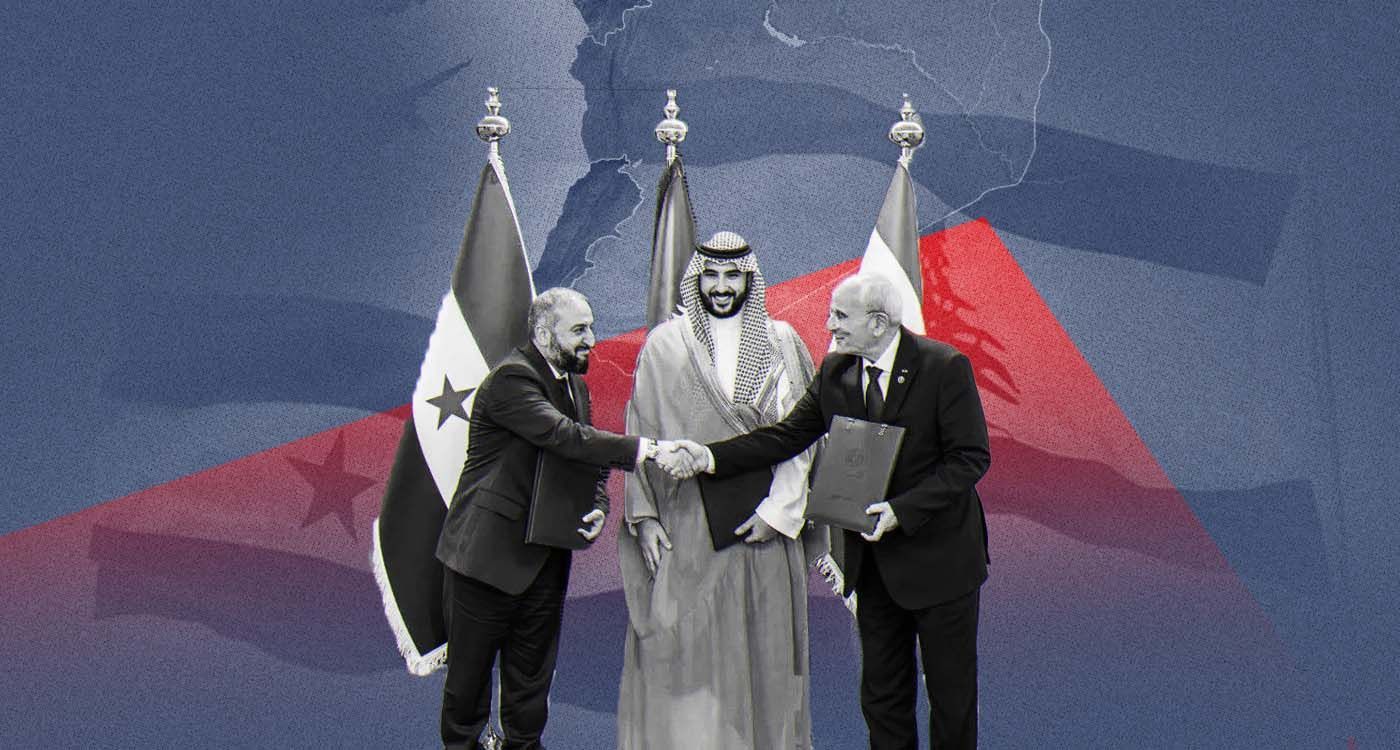
The issue of borders between Lebanon and Syria remains one of the most complex aspects of relations between the two countries. Today, this topic has resurfaced, particularly following Saudi Arabia’s intervention, as the Kingdom increasingly asserts itself as a key mediator in the region. In fact, a significant step was taken in this regard last Friday.
Lebanon and Syria, which were gathered in Jeddah under the auspices of the Saudi Kingdom, signed a preliminary agreement on the delimitation of their shared border. This commitment aims to outline a boundary that has long been marked by ambiguity and tension, especially since Lebanon’s independence in 1943. No official and comprehensive demarcation has ever been established, leaving room for gray areas, particularly in the Beqaa region, Akkar, and some mountainous zones. These ambiguities have led to land disputes, uncontrolled cross-border smuggling and, on several occasions, security tensions.
Although the issue has been raised multiple times over the past decades, Lebanon’s internal conflicts, Syria’s dominance over Lebanon until 2005, and geopolitical upheavals in the region have continuously delayed its resolution.
Saudi Arabia: A Vector for Peace?
The announcement of this agreement comes at a time when relations between Damascus and several regional actors, including Gulf states and Iran, are being redefined. “We are witnessing a shift in dynamics,” a reliable source noted. “Saudi Arabia, the host of the negotiations, has played a central role in resolving several Middle Eastern issues in recent months. It is also working to curb Iranian interference and facilitate rapprochement between Lebanon and Syria in an effort to stabilize the region,” the source continued, highlighting that the first official visit of Lebanese President Joseph Aoun after his election was to Saudi Arabia. The same was true for Ahmad al-Sharaa, who succeeded Bashar al-Assad following the fall of his regime on December 8, 2024. “This confirms Riyadh’s prominent role as it embarks on a diplomatic mission to establish peace in the region,” the source added.
The Agreement’s Framework and Implications
The Jeddah agreement sets a general framework for the future demarcation of the border, though it does not establish final details. Further meetings are scheduled in the coming weeks to finalize the matter. Nevertheless, one of the key aspects of this agreement is that “for the first time, Syria may actually agree to definitively delineate its borders with Lebanon, which would mark a historic turning point,” the source emphasized.
Notably, in August 2008, during an Arab summit in Damascus, former Lebanese President Michel Sleiman and Syrian President Bashar al-Assad discussed the necessity of defining their borders and announced the reactivation of joint committees to address the issue. They also addressed the disputed Shebaa Farms, a contested area at the intersection of Lebanon, Syria and Israel, which was occupied by Israel and considered Lebanese by Syria at the time. However, the initiative collapsed when Syrian authorities halted the process.
When asked about the details of the current agreement, the source suggested that it “should, in principle, include the establishment of a joint commission tasked with studying disputed points and proposing a demarcation line, a mutual commitment to respect each other’s territorial sovereignty, measures to combat cross-border smuggling, and enhanced security cooperation to prevent unauthorized incursions and local tensions.”
The key question remains: will this preliminary agreement translate into concrete actions, or will it simply join the long list of diplomatic commitments that never materialize?

Comments